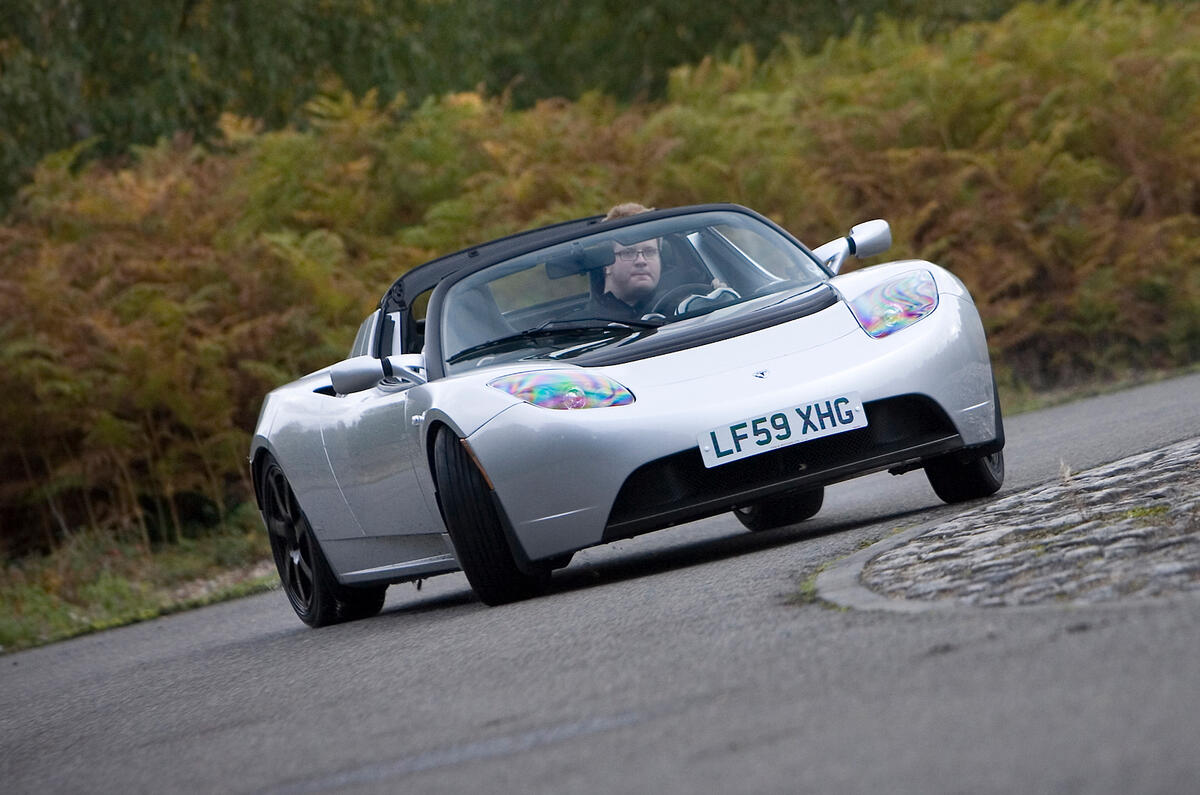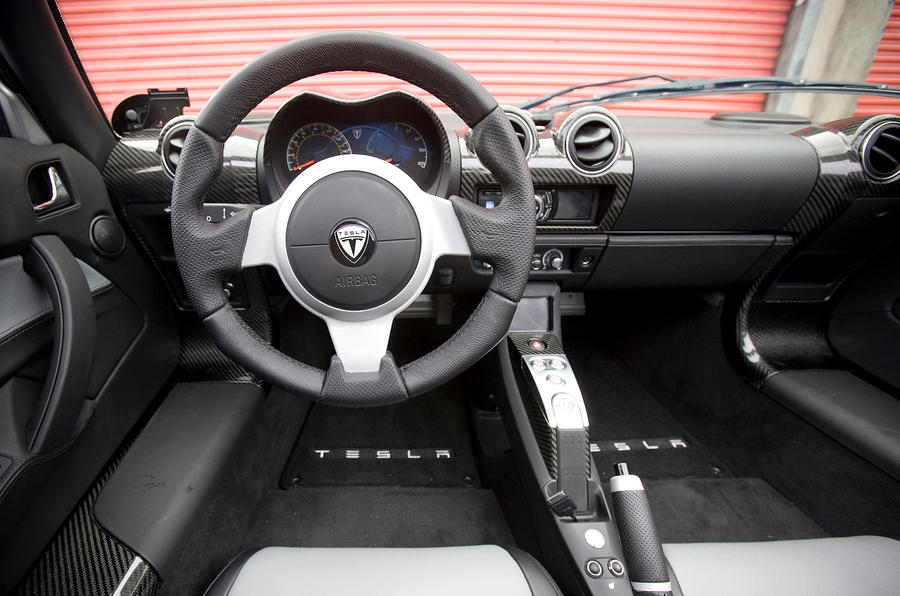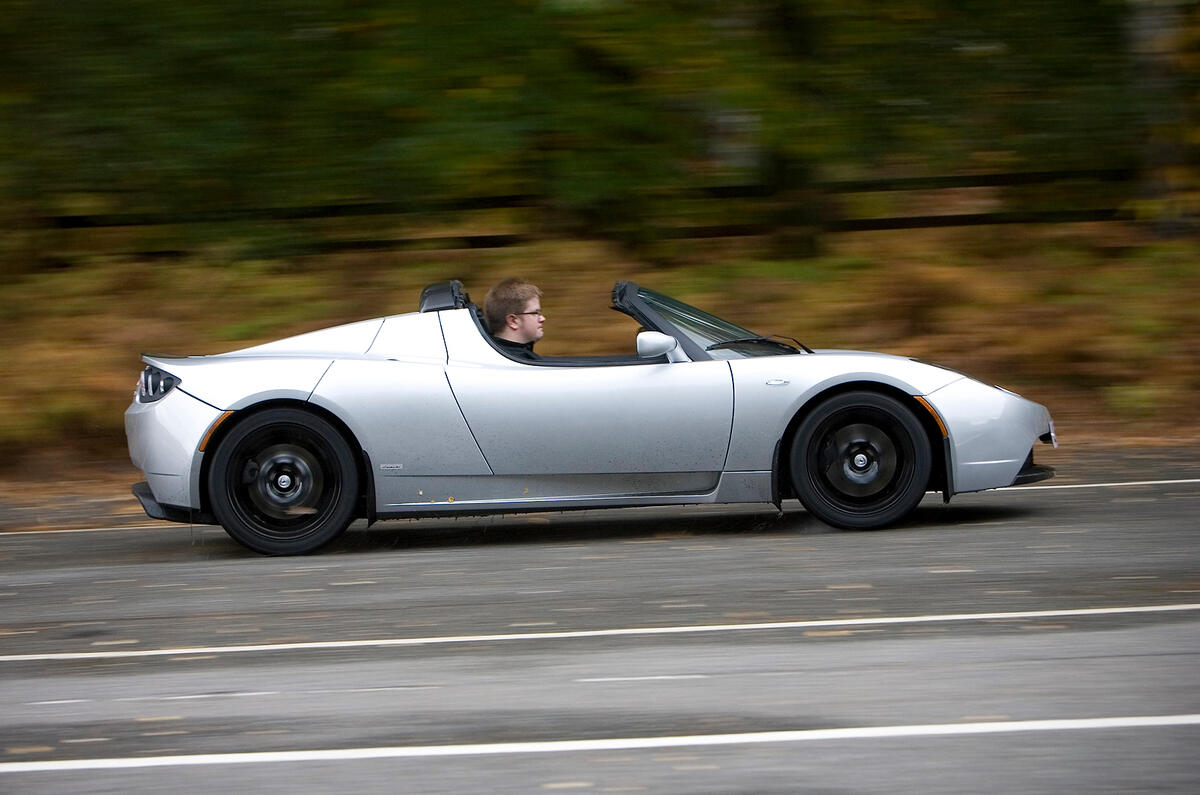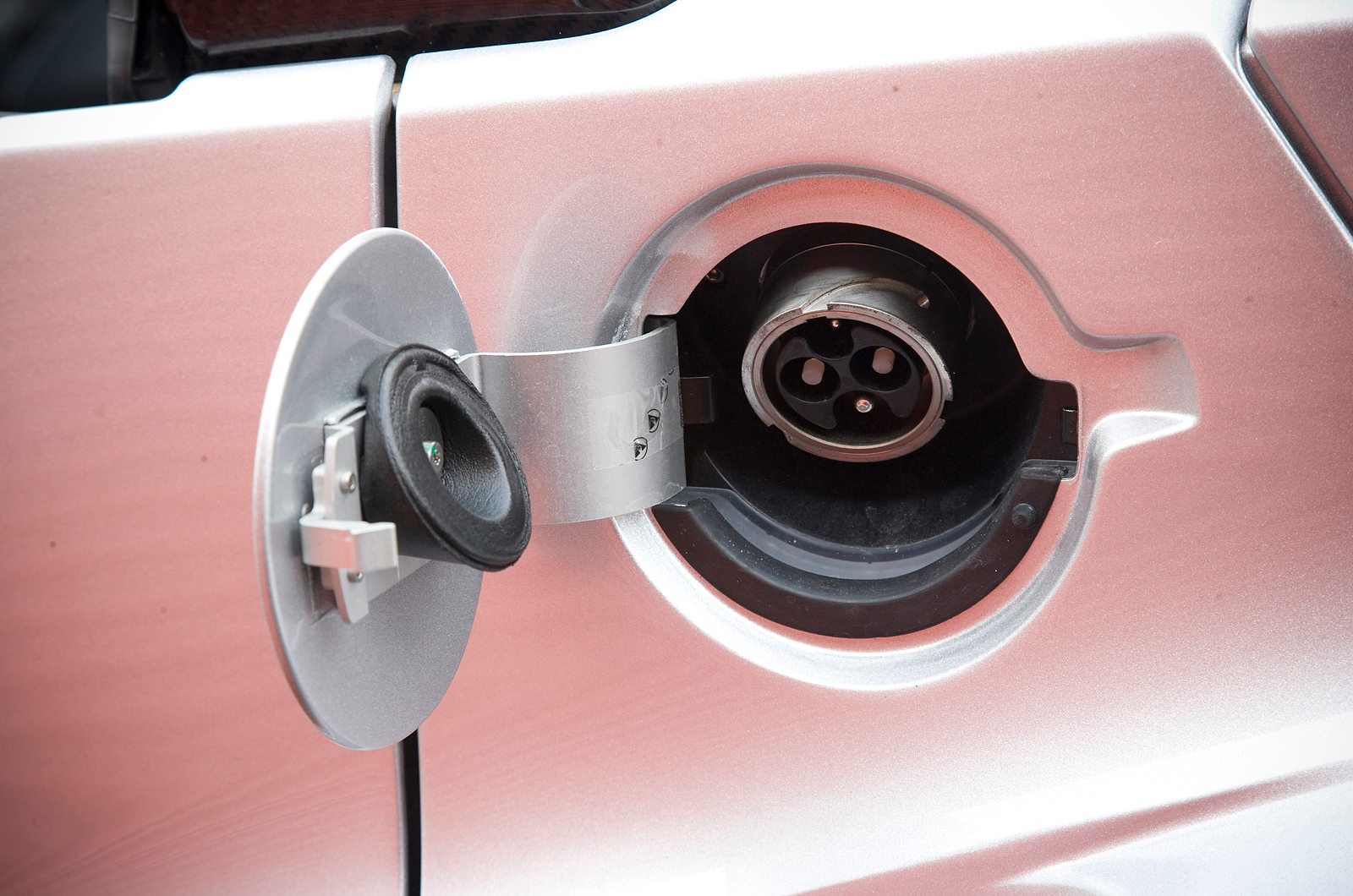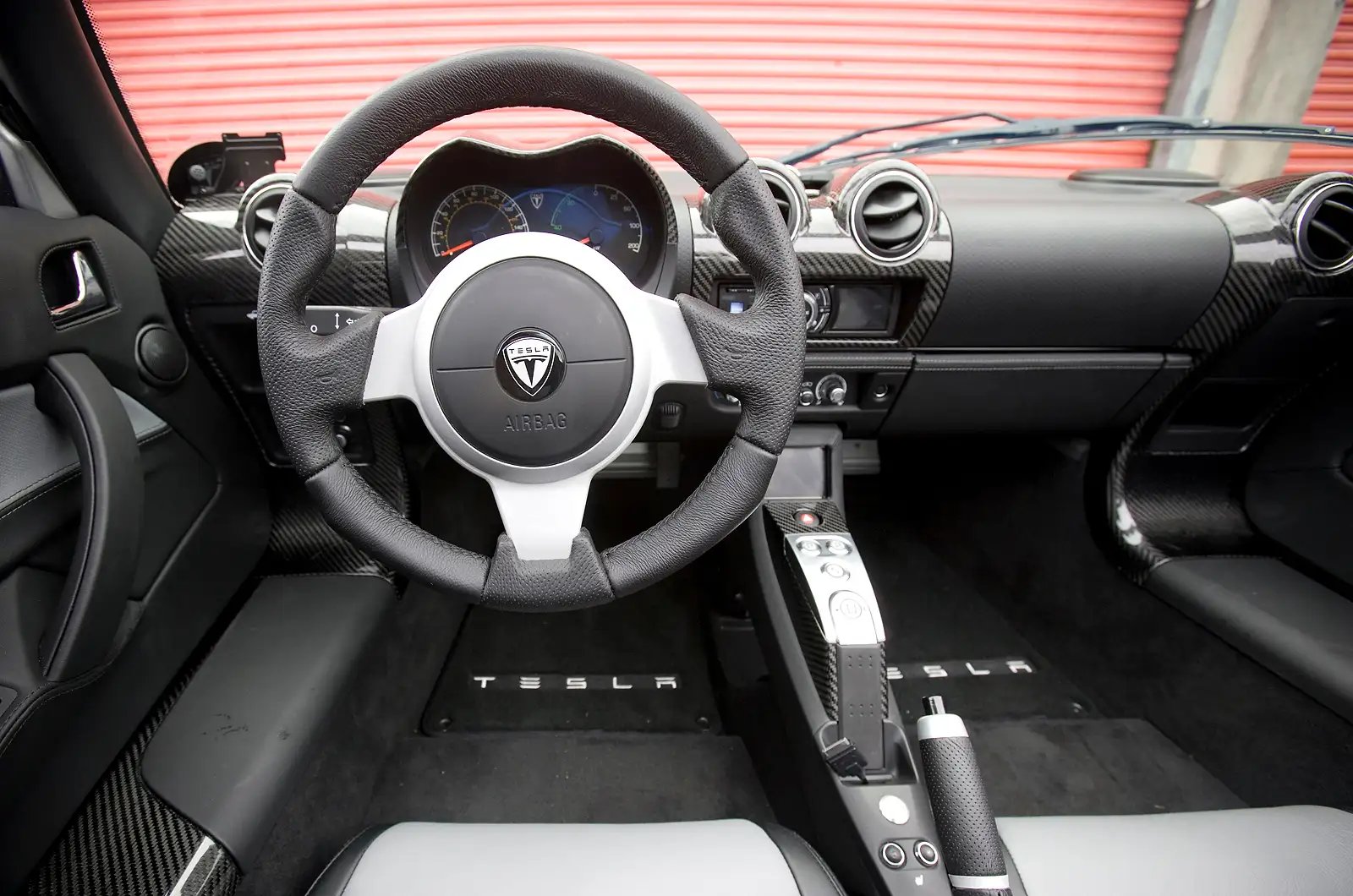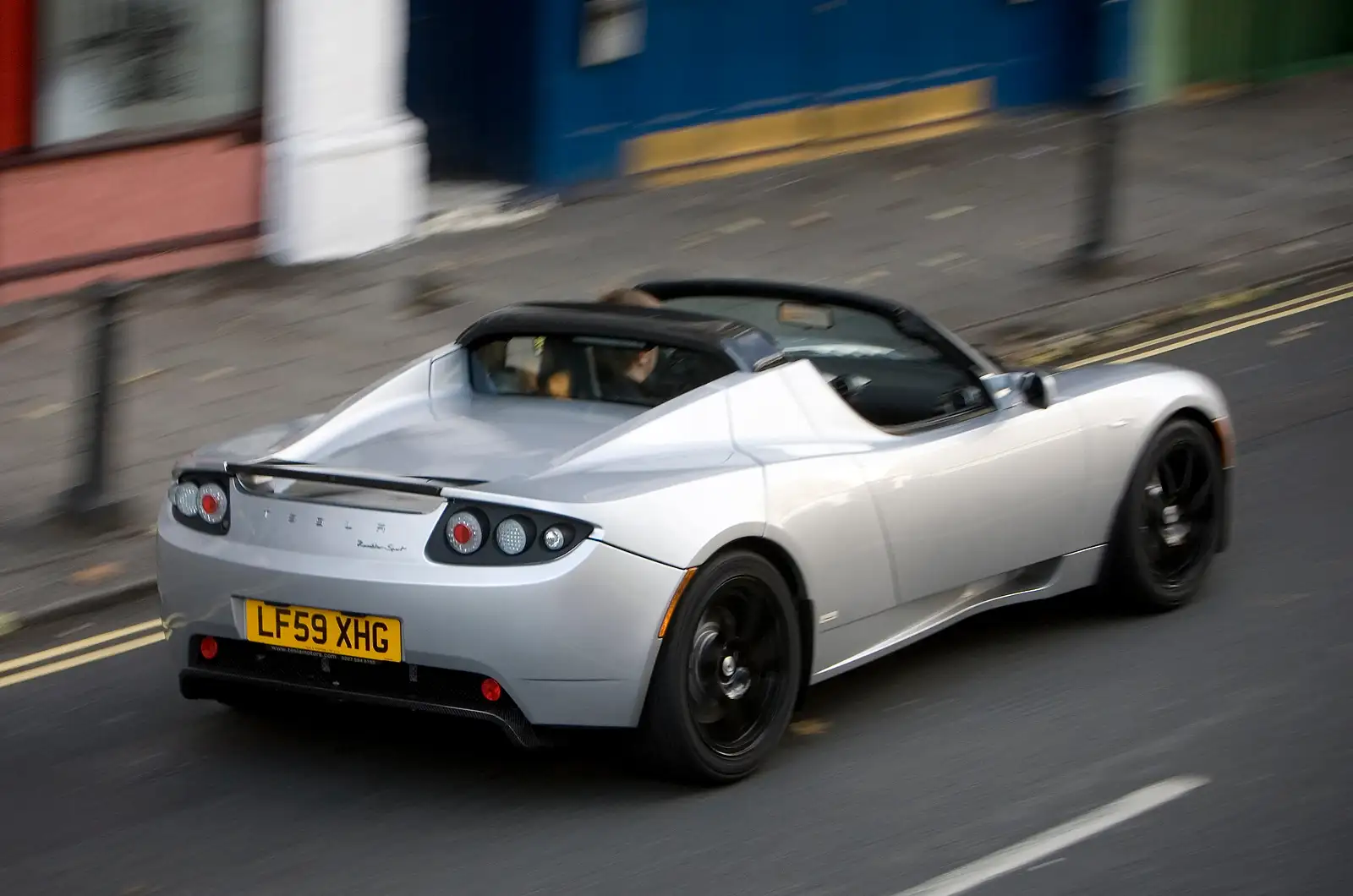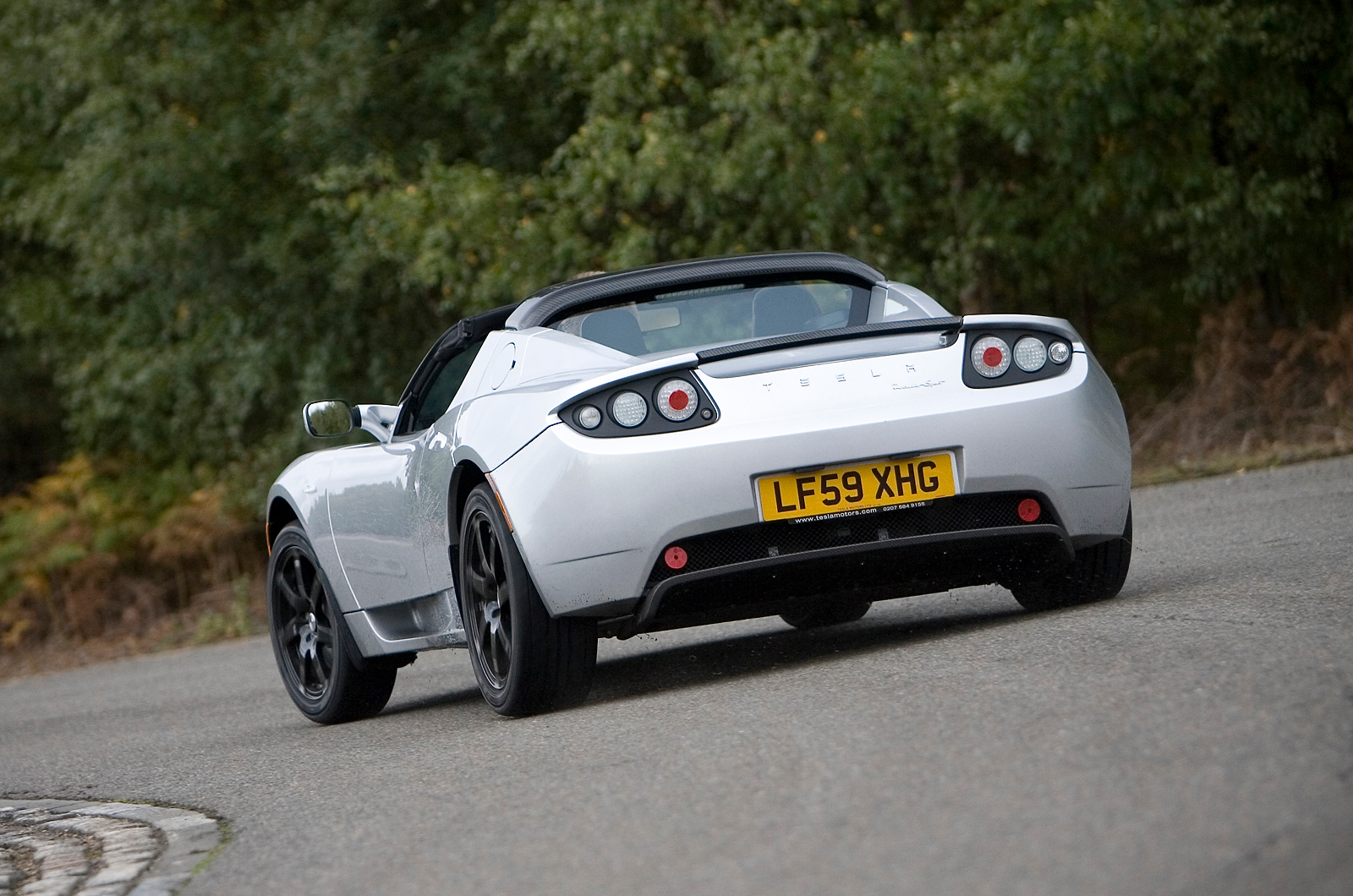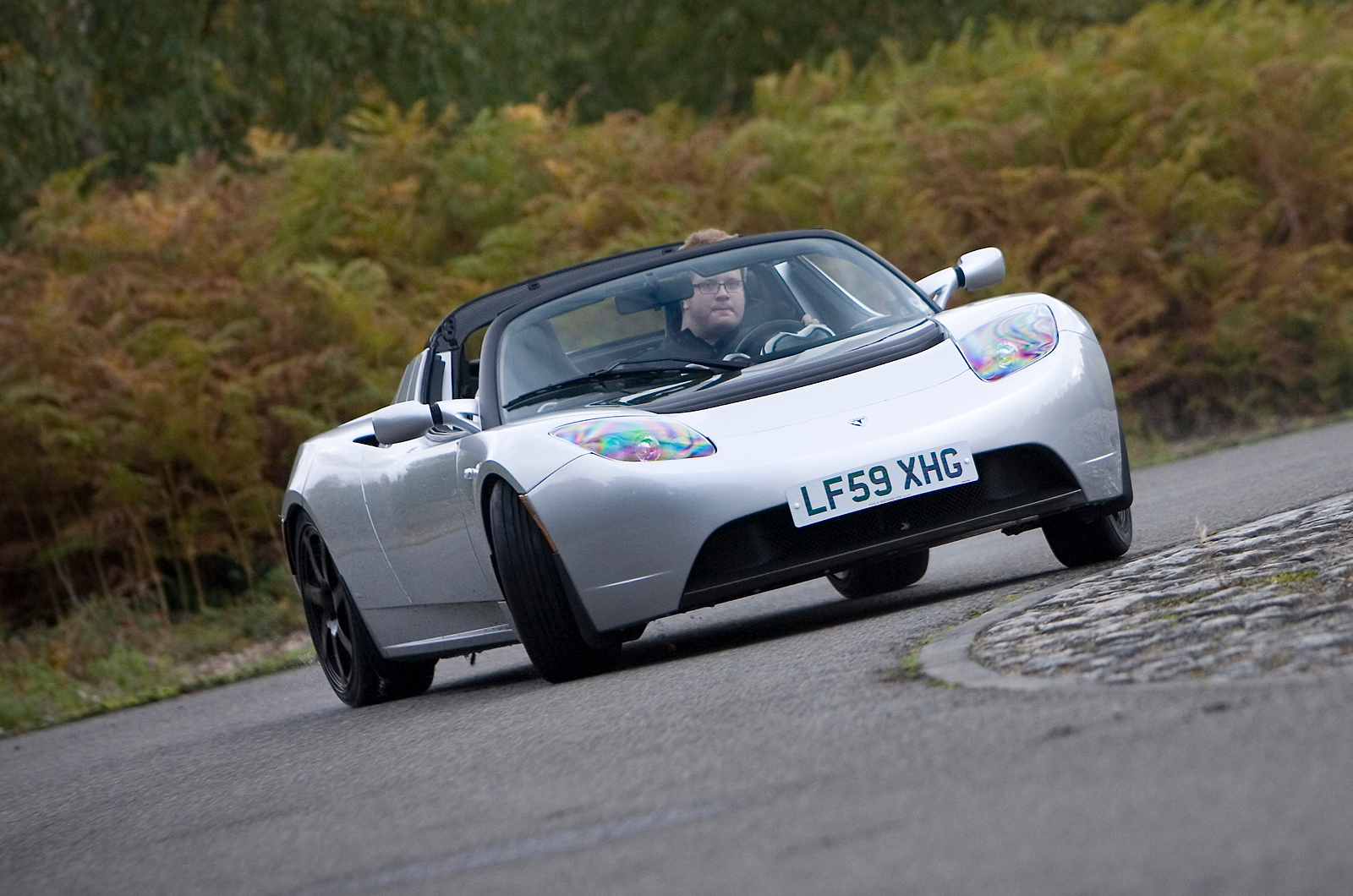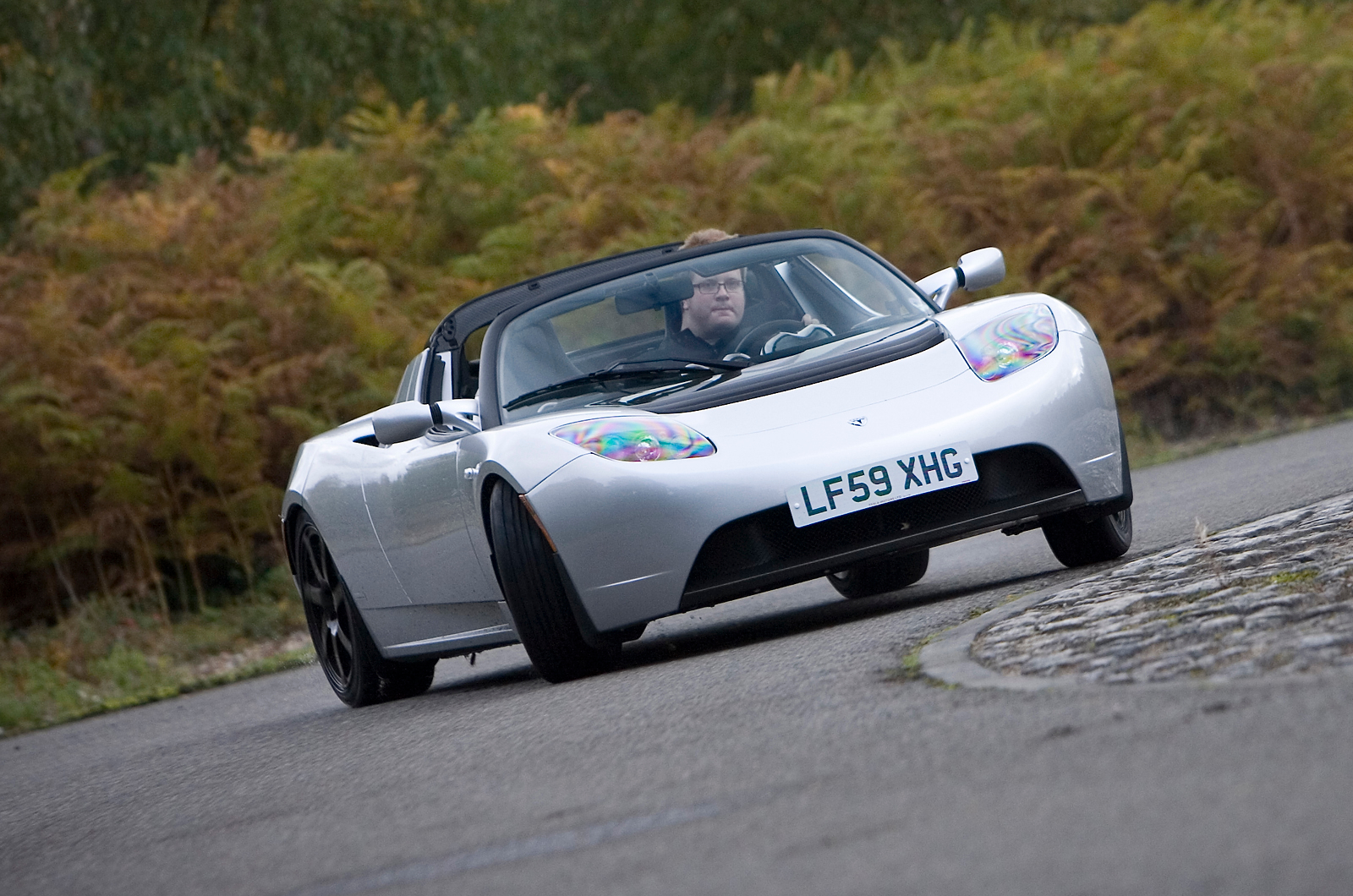“Most electric cars were designed by and for people who fundamentally don’t think we should drive,” says Martin Eberhard, one of Tesla’s founders. Tesla set out in 2003 to change that with the Roadster.
It took until 2006 before the Roadster was unveiled. Production started in earnest in 2008, with 10 production cars reaching California by the middle of last year, and 150 by the end of the year. The Roadster is the first Tesla, but it won’t be the last; more models arrived in the shape of the Model S and Model X.
Ever since carriages dispensed with horses there have been electric cars, but for much of the past century they’ve been relegated to niche vehicles, performing at low speeds over short distances. Even supposedly radical recent ones do little else.
The Tesla Roadster aims to change that. It’s not just an electric car; it’s an electric sports car, and a very expensive one at that. It is Tesla’s attempt to glamorise electric motoring and, as we’ll discover, it’s fascinating, totally relevant and revolutionary.
Buyers can choose between the standard car and the Roadster Sport, which gets lightweight alloy wheels, more performance-oriented Yokohama tyres, 10-way adjustable Ohlins dampers, adjustable anti-roll bars, and a more powerful electric motor.



